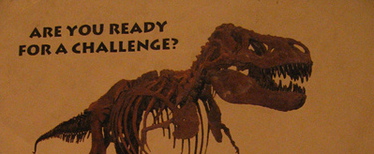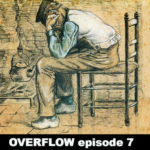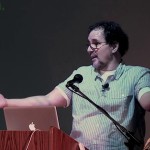We run our website the way we wished the whole internet worked: we provide high quality original content with no ads. We are funded solely by your direct support. Please consider supporting this project.

Evolution as Believers?
I guess we’re on a roll on science topics these last few days.
As a pastor my only concern with the creation/evolution “debate” is that those who feel they must deny evolution don’t make this a hurdle people have to jump over to get into the kingdom. As a fellow member of American society, however, my concern goes a bit deeper, for as Bill Nye says in the article below, having such a widespread resistance to the most fundamental aspect of science “holds everyone back.” As an apologists/evangelist, my concern goes deeper still. For the multitude of Christians who leverage the credibility of the Christian faith on the rejection of such a thoroughly proven theory gives multitudes of informed people just cause to not take the central truth claims of Christianity seriously. And as a theologian, my concern goes deeper still. For we are created and called to worship God with our minds by exploring truth, integrating truth, and growing in our understanding of truth wherever truth is to be found, whether in Scripture, in the sciences, in the arts, in religion…wherever. To reject evolution is to close the door on a wonderful opportunity to grow in our mindful worship of God as we explore ways of integrating it into our understanding of Scripture, of God’s creation, of God’s providence, the problem of evil, spiritual warfare, and a host of other issues.
And this rejection is just so completely unnecessary!
Check out the short but provocative story highlighting Nye’s views that has been causing a bit of a stir. And keep thinking!
Image by Aoife city womanchile. Used in accordance with Creative Commons. Sourced via Flickr.
Related Reading

A Rational Defense of Belief in God
The New York Times recently posted a review of Alvin Plantinga’s book, Where the Conflict Really Lies: Science, Religion, and Naturalism. In it, Plantinga argues on philosophical grounds that, among other things, theism is not in conflict with science, that a belief in naturalism along with evolution is contradictory, and that “Faith…is another basic way of forming beliefs, distinct…

An Apology from Greg
Ken Ham, the head of Answers In Genesis has called on me to publicly apologize and “retract [my] false statement” when I insinuated that he “preaches a false Gospel” by requiring “people to declare war on science as a precondition to entering the kingdom.” Ken pointed out that his organization’s Statement of Faith states that,…

Glorious Creation
I’m not a scientist, but I’ve always loved to dabble in it. In fact, I collaborated with some friends and wrote a quirky picture book on the interfacing of various areas of science (e.g. quantum theory, chaos theory) and the open view of the future. It’s called The Cosmic Dance and, just to let the…

Which Came First: Death or Sin? (podcast)
Greg investigates the laws of nature, the nature of law, the fall of the powers, and the power of the fall in this enlightening episode that evolves right up to the climactic ending. Episode 561 http://traffic.libsyn.com/askgregboyd/Episode_0561.mp3

Overflow Episode 7 — Paul Anleitner on Our Crisis of Meaning, Science and Genesis, and MORE (podcast)
Greg considers the evangelism implications of the idea that we are all IN. Why risk someone having an opportunity to opt out? Episode 496 http://traffic.libsyn.com/askgregboyd/Episode_0496.mp3 EXTRAS! EXTRAS! EXTRAS! http://traffic.libsyn.com/askgregboyd/Episode_0496_EXTRA.mp3

The Warfare Worldview
The Warfare Worldview from Roberta Winter Institute on Vimeo. Here’s a video presentation that Greg did at the Roberta Winter Institute regarding the Warfare Worldview. Enjoy!
